Are you seeking to navigate the sometimes tricky waters of requesting overtime work approval? Crafting a persuasive yet professional letter can make all the difference in ensuring your request is taken seriously. In this article, we'll guide you through the essential elements of a compelling overtime request, including polite language, clear reasoning, and necessary details. So, if you're ready to elevate your approach and get that approval, keep reading to discover valuable tips and a handy template!
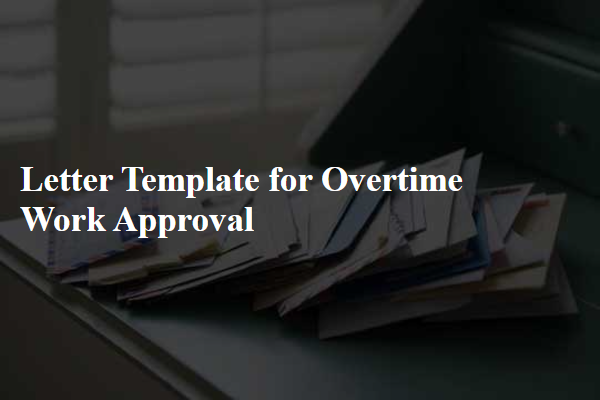
Employee Details
The request for overtime work approval details the employee's identity, including full name, job title, and employee identification number, along with department and supervisor information. Critical information includes the dates and specific hours worked beyond the standard schedule, which typically spans 40 hours per week. The submission must clearly state the reason for overtime, such as project deadlines, unexpected workloads, or staffing shortages, emphasizing the significance of these factors in operational continuity. Additionally, it is essential to outline the anticipated compensation per company policy, ensuring compliance with labor regulations regarding overtime pay, which usually consists of 1.5 times the regular hourly rate. This structured approach aids management in assessing the necessity and financial implications of the overtime request.
Overtime Justification
Overtime work can lead to enhanced project completion rates, especially in high-demand industries such as technology and healthcare. Approval for overtime is often essential during critical phases, such as product launches or patient care surges. The necessity for additional hours frequently arises during deadlines (for example, quarterly reports due by the end of the fiscal year) that can cause significant stress on team members. Unforeseen circumstances like equipment failures or staff shortages due to illness can trigger the need for overtime. Furthermore, maintaining quality standards (like ISO certifications or FDA regulations) requires extra effort, demonstrating the crucial role of overtime in ensuring operational success and meeting stakeholder expectations.
Specific Dates and Hours
Overtime work, particularly in the fast-paced environment of modern business, often requires approval from management, ensuring proper budgeting and compliance with labor laws. An employee may request overtime for specific dates, such as March 15-17, from 5 PM to 8 PM, typically aligning with project deadlines or unexpected workload increases. Documentation should include overtime justification, details about the project, potential impact on team goals, and reference to company policy regarding overtime pay rates (often 1.5 times the standard hourly wage). This structured approach, when requesting approval, promotes transparency and proper resource management within the organization.
Approval Authority Signature
The approval of overtime work requires proper authorization from designated management personnel. Overtime, defined as hours worked beyond the standard 40-hour workweek, often necessitates an official request form. This document typically includes details such as employee name, department, specific dates of overtime, total hours requested, and reason for the additional hours, ensuring transparency and accountability. The Approval Authority, usually a supervisor or department head, is responsible for reviewing the request, considering budget constraints and project deadlines before providing their signature, thereby formalizing consent for the extra work hours.
Terms and Conditions
Overtime work approval often includes specific terms and conditions that govern the eligibility and compensation associated with additional hours worked. Employers typically outline criteria such as hourly wage rates (usually time and a half or double time for certain roles) for hours exceeding the standard 40-hour workweek. Approval processes may require written requests submitted at least 24 hours in advance to a direct supervisor or human resources department. Documentation may also specify any limits on the maximum number of overtime hours permissible within a pay period, ensuring compliance with labor regulations. Failure to adhere to these guidelines could result in denied compensation or disciplinary measures. The workplace location, such as corporate offices in New York or manufacturing plants in Texas, may influence the specific regulations applicable due to local labor laws.

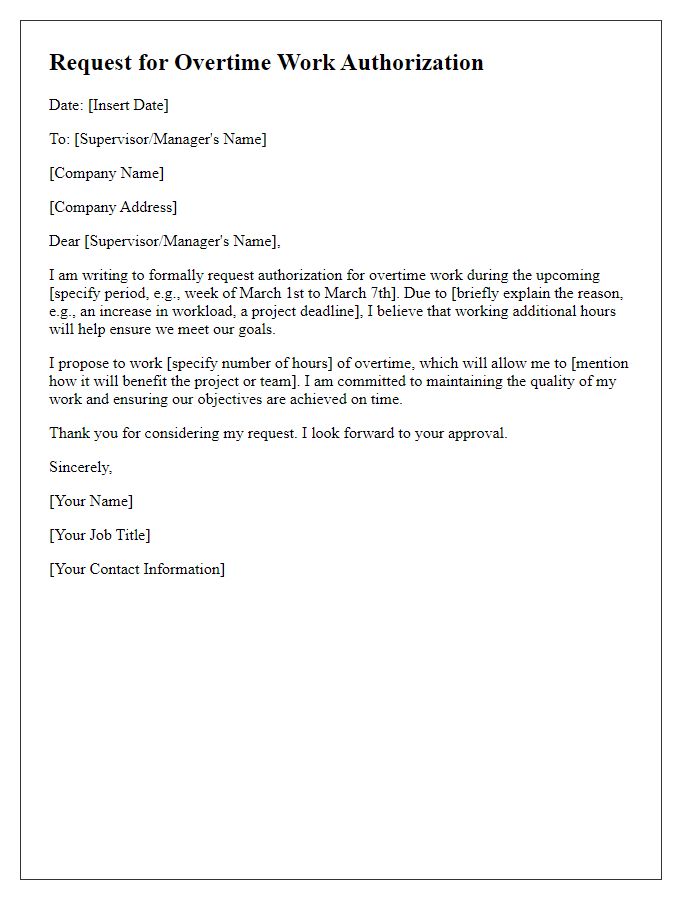
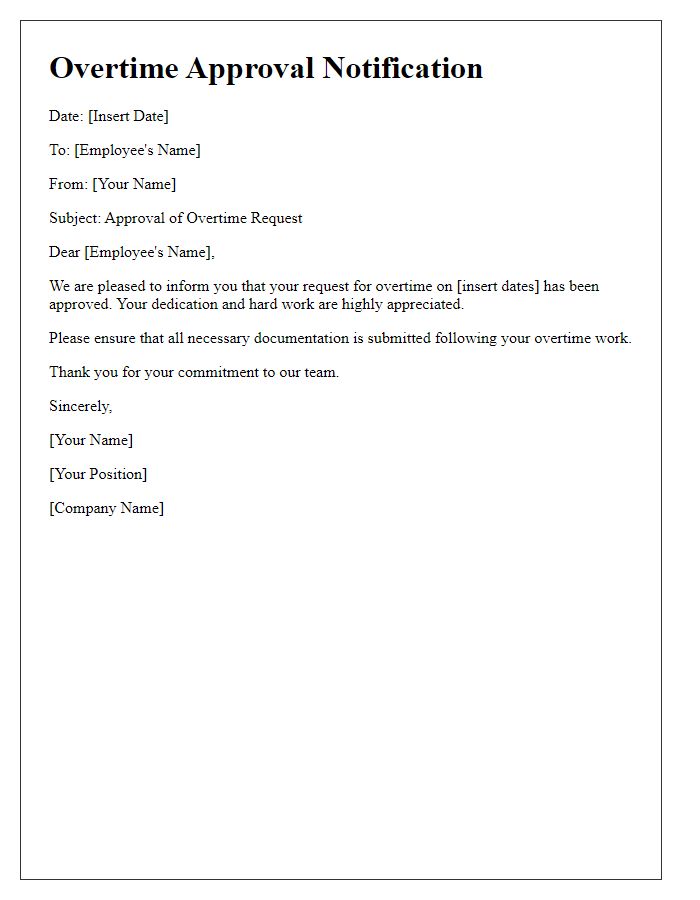
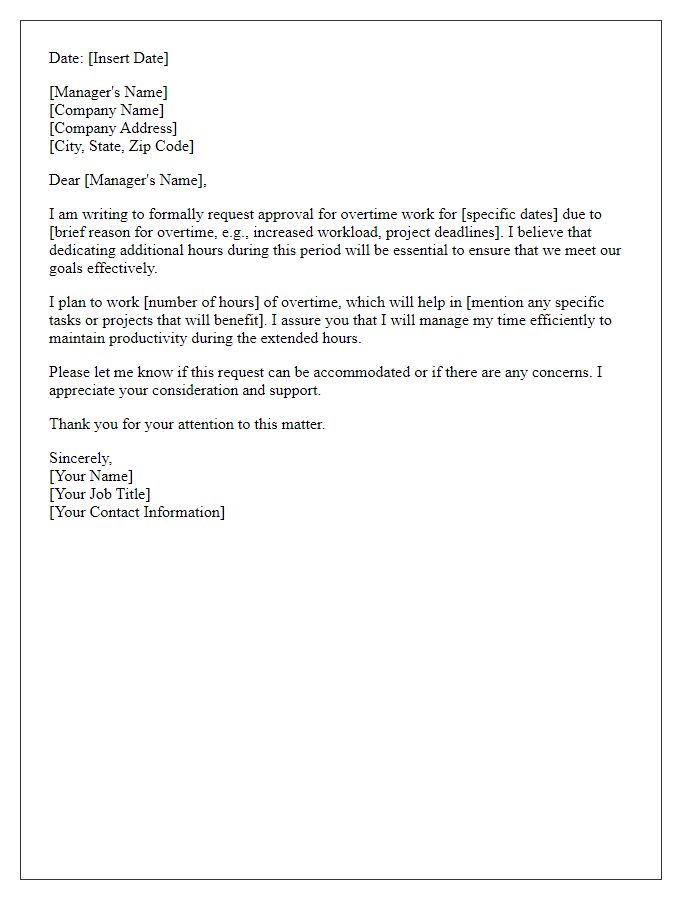
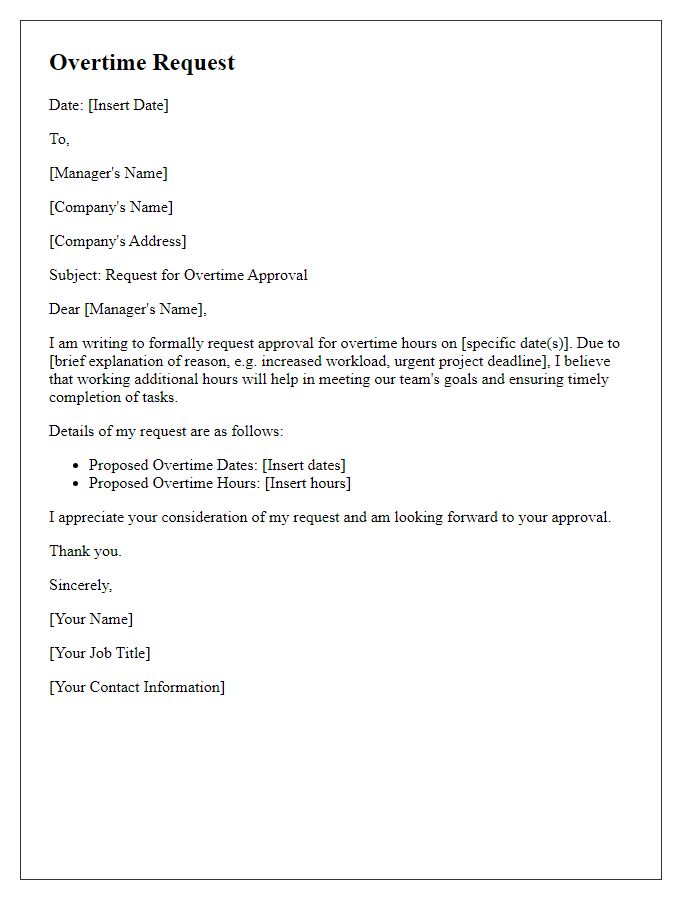
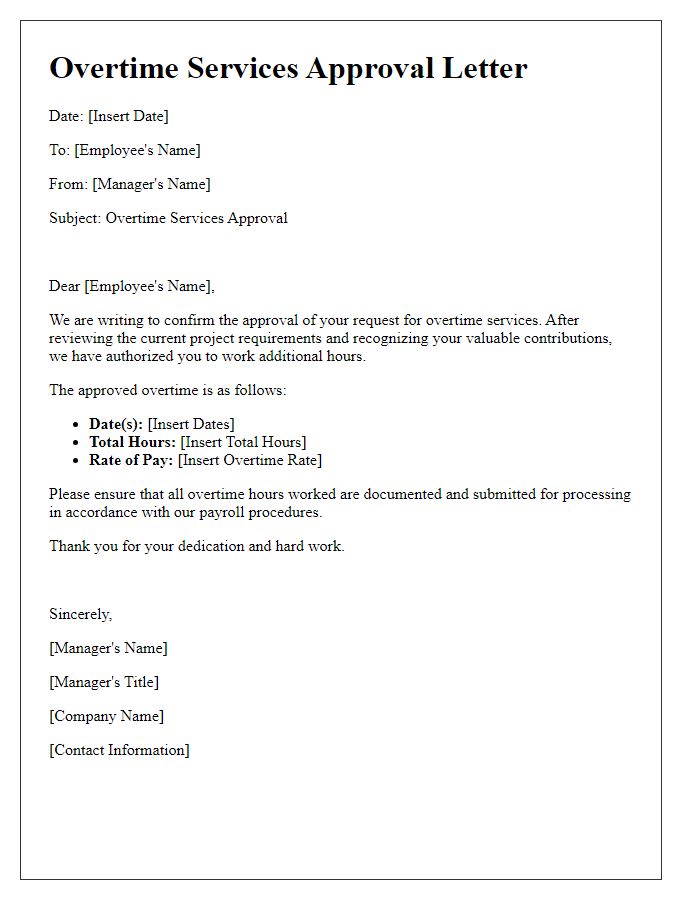
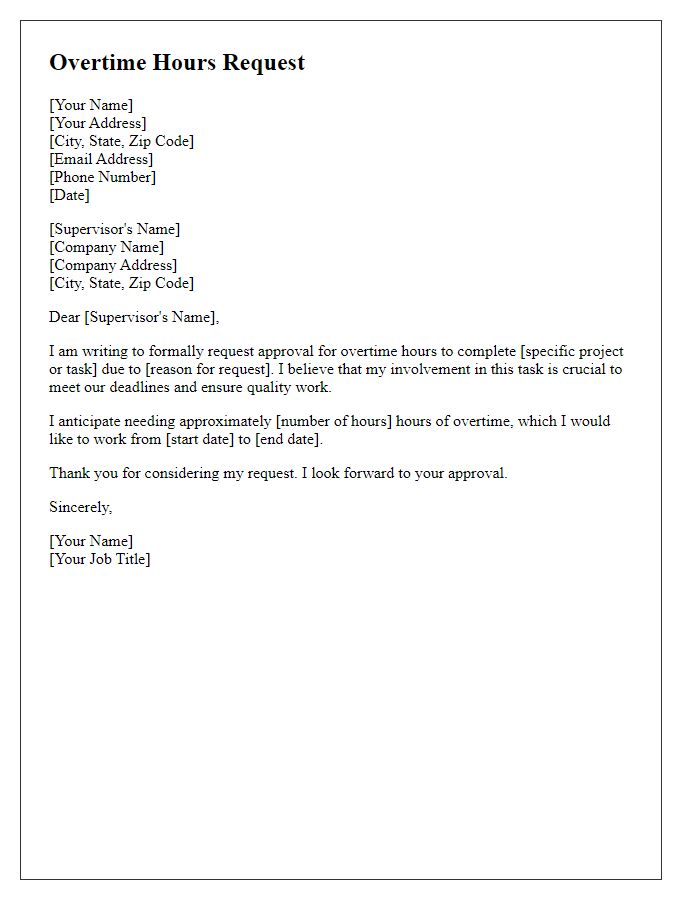
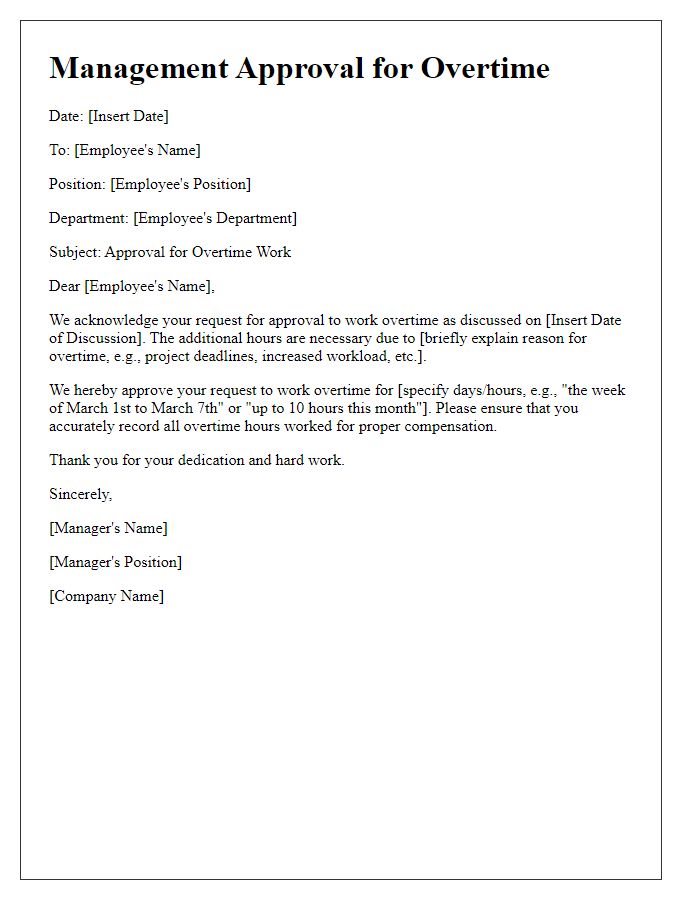
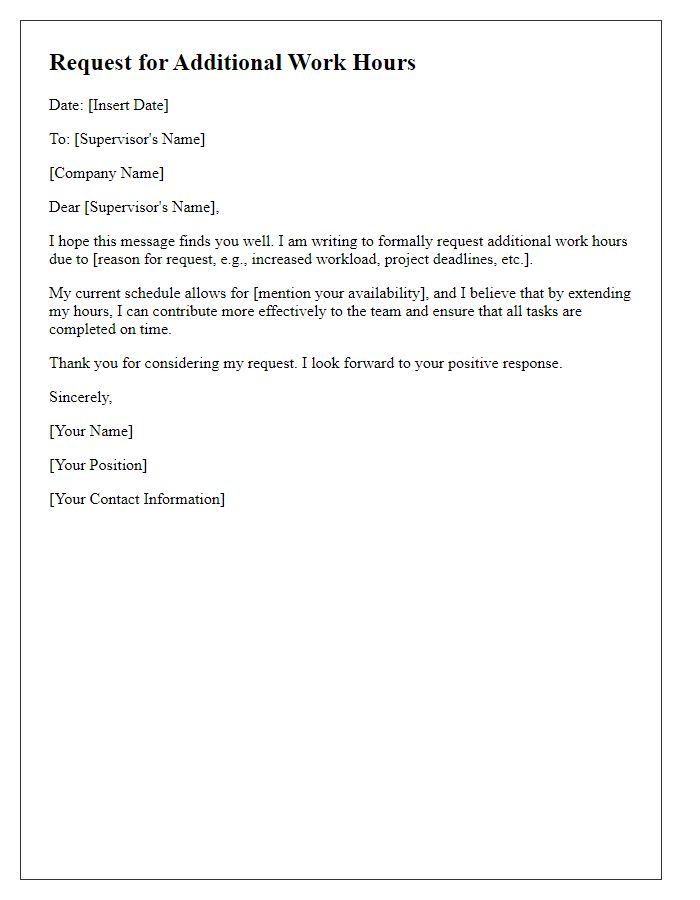
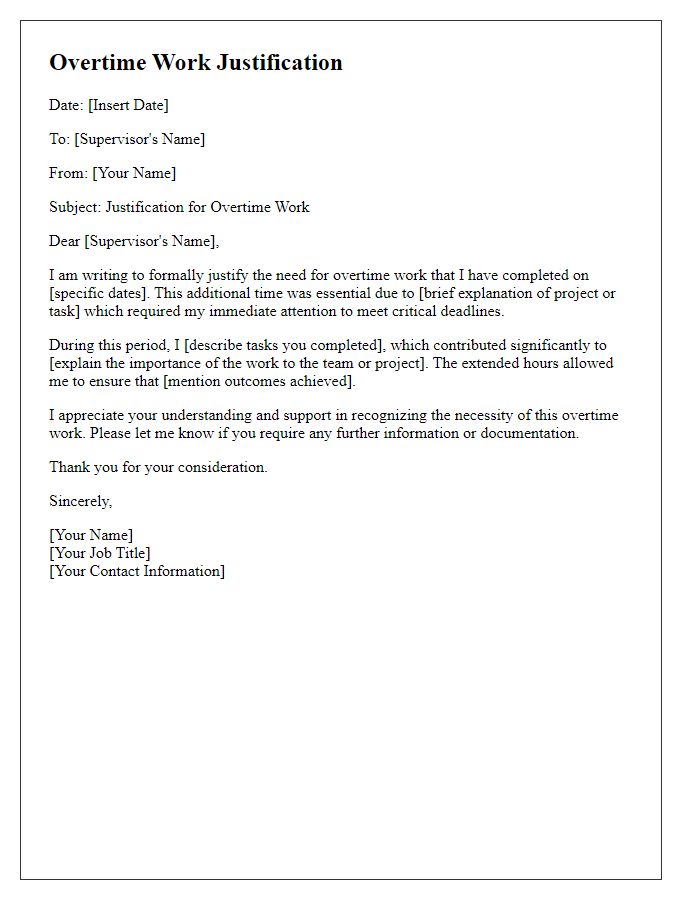
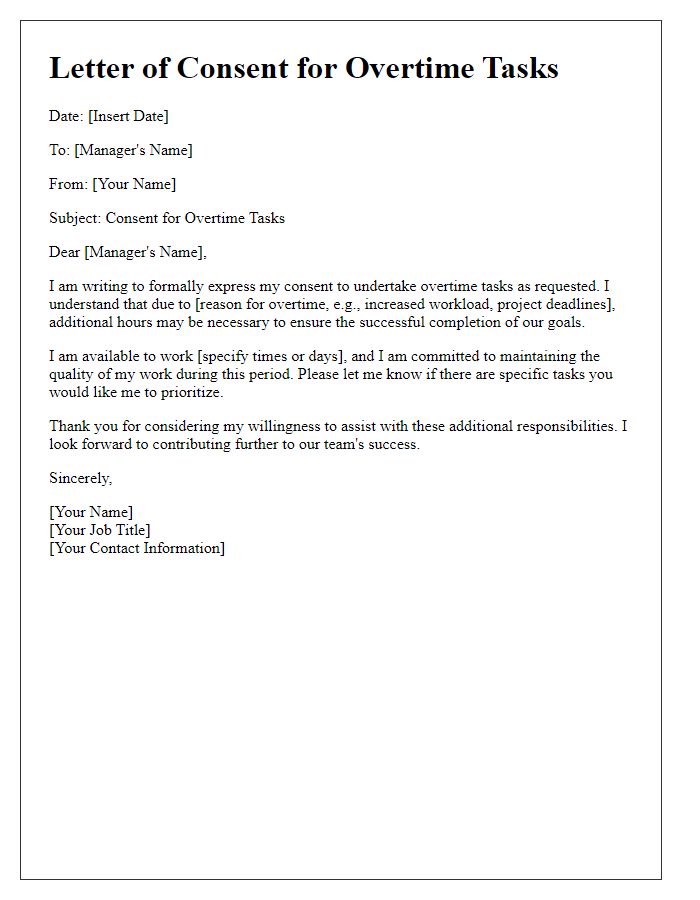


Comments